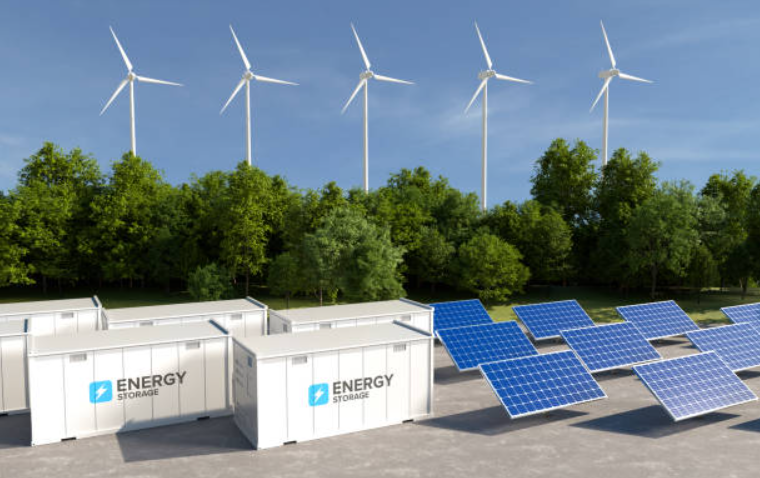Introduction
The adoption of solar power has been steadily increasing worldwide, with emerging markets playing a significant role in this growth. As the costs of solar technology continue to decrease and governments offer attractive incentives, the impact of solar power on the global economy is becoming more pronounced. In 2024, we’re witnessing a remarkable surge in solar adoption, driven by the pursuit of energy independence and economic growth.
The Rise of Solar Power in Emerging Markets
Many governments in emerging markets are implementing supportive policies to encourage the adoption of solar power. These policies often include tax breaks, subsidies, and other financial incentives that make solar a more accessible and appealing energy solution. Countries like India, China, and several nations in Africa and South America have been at the forefront of this solar power revolution.
Case Study: India’s Solar Success Story
India has been a shining example of the impact of solar power on the economy. In 2024, the country surpassed its ambitious target of installing 100 GW of solar capacity, thanks to its comprehensive “National Solar Mission” program. This initiative, coupled with state-level incentives, has not only boosted India’s energy security but also created thousands of jobs in the renewable energy sector, contributing to the country’s overall economic growth.
Emerging Market Trends
Across emerging markets, we’re seeing a common trend: governments are recognizing the long-term benefits of solar power. By investing in solar, these nations are reducing their dependence on fossil fuels, mitigating the impact of volatile energy prices, and positioning themselves for a more sustainable economic future.
Let’s dive deeper into the emerging market trends around solar power adoption:
Emerging Market Trends
One of the key trends we are seeing across emerging markets is a growing recognition by governments of the long-term benefits that solar power can provide. These countries are increasingly realizing that investing in solar energy can have significant positive impacts on their economies and energy security.
Reducing Dependence on Fossil Fuels
Many emerging markets have historically relied heavily on fossil fuels, such as oil, gas, and coal, to meet their energy needs. However, the volatility of global fossil fuel prices can create economic instability and uncertainty. By transitioning to solar power, these nations are able to reduce their reliance on imported fossil fuels and take more control over their domestic energy supply.
Mitigating Price Volatility
The prices of fossil fuels can fluctuate widely due to geopolitical factors, supply chain disruptions, and other market dynamics. This volatility makes it challenging for governments and businesses to plan and budget effectively. Solar power, on the other hand, provides a more stable and predictable energy source, as the operating costs are primarily upfront capital investments rather than ongoing fuel expenses.
Positioning for Sustainable Growth
Beyond the immediate energy and economic benefits, governments in emerging markets are also recognizing the long-term strategic value of investing in solar power. By building out their renewable energy infrastructure, these countries are positioning themselves for a more sustainable economic future. This includes creating green jobs, attracting clean energy investments, and reducing their environmental impact.
By embracing solar power, emerging market governments are demonstrating a forward-thinking approach that prioritizes energy security, economic resilience, and environmental responsibility. This shift has the potential to unlock significant economic growth and development opportunities in these regions in the years to come.
The Economic Implications of Solar Power Adoption
The rise of solar power in emerging markets has far-reaching economic implications. Let’s explore some of the key ways in which solar is impacting the global economy:
1. Job Creation
The solar industry has become a significant source of employment worldwide. In emerging markets, the demand for solar technicians, installers, and maintenance workers has surged, providing much-needed job opportunities and boosting local economies.
2. Cost Savings and Energy Independence
As solar technology becomes more affordable, businesses and households in emerging markets are leveraging solar power to reduce their energy costs. This, in turn, frees up capital that can be reinvested into other areas of the economy, driving further growth.
3. Sustainable Infrastructure Development
The investment in solar power infrastructure is paving the way for more sustainable economic development. As emerging markets build out their solar capacity, they’re creating a foundation for long-term energy security and environmental stability.
The Role of SolarBuyBack.com
SolarBuyBack.com has been at the forefront of facilitating the growth of solar power in emerging markets. By providing a reliable platform for solar panel buyback and resale, the company has made it easier for individuals and businesses to adopt solar energy solutions. SolarBuyBack.com’s commitment to transparency and customer satisfaction has earned it a reputation as a trusted partner in the renewable energy landscape.
Conclusion
The surging impact of solar power on the global economy in 2024 is undeniable. As emerging markets continue to embrace this renewable energy source, we’re witnessing a transformative shift in the way these nations power their economies. With the support of government incentives and the invaluable services of companies like SolarBuyBack.com, the future of solar power in emerging markets looks brighter than ever.



